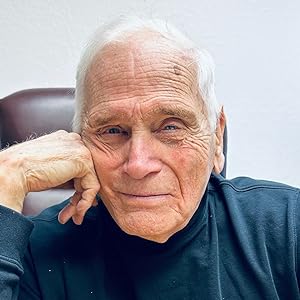John Viera left his CIA fieldwork hoping for a “normal” occupation and a long-awaited family, but when a Pakistani engineer is kidnapped from a top-secret US project and diplomatic entanglements tie the government’s hands, the Intelligence Community turns to John and his team of ex-operatives to investigate — strictly off the books. They uncover a plot of unprecedented magnitude that will precipitate the slaughter of millions.
From the corporate skyscrapers of Montreal to the treacherous alleys of Baluchistan, these formidable enemies strike, determined to create a regional apocalypse and permanently alter the balance of world power. Isolated in their knowledge of the impending devastation, John and his network stand alone between total destruction and the Leopard of Cairo.
This is the first book in the Apex Predator series.

Get The Leopard of Cairo at Amazon.
How did you do research for your book?
The majority of our research for The Leopard of Cairo and our other fiction comes from Jay Holmes’s fifty years of experience in military and intelligence operations. Piper will call him up and say something like, “We need to blow something up,” or “What will John Viera do if he’s being followed?” Jay either tells her off the top of his head or he gets back to her in a day or so, and she fills in the rest from her own knowledge and with Google.
Which was the easiest character to write?
Jay finds it easiest to write the male operatives on the team. For Piper, the female characters are easiest to write, particularly the middle-aged female assassin, Mrs. Beasley. Piper isn’t sure what that says about her own personal character.
Where do you get inspiration for your stories?
Usually, our inspiration starts with some tawdry joke we make while eating a fresh chocolate cake in Holmes’s kitchen sometime after midnight. If we’ve had a sip of guinda, a Spanish cherry liqueur, the work goes faster.
Your book is set in Quetta, Pakistan, Cairo, Egypt, Montreal, Canada, Northern Vermont, and Flagstaff, Arizona. Have you ever been there?
Piper has only been to Flagstaff, but Jay has been to all of these places. Piper would love to visit Montreal and Vermont, but Jay has warned her away from Quetta and Cairo.
If you could put yourself as a character in your book, who would you be?
Piper would love to be as tough as Angelina. Jay is already one or two of the male characters, including our protagonist John Viera.
How long have you been writing?
Piper has been writing off and on since she flunked Calculus in college and switched her major from Biophysics to technical writing. She began writing novels in 2004.
Jay has been writing professional papers for over four decades, and he has occasionally been forced to turn in government paperwork that resembles writing during that same time span. Piper roped him into writing fiction, spycraft, and history books in 2010.
What is the last great book you’ve read?
Piper just finished Seven Pillars of Wisdom by T.E. Lawrence, a.k.a. Lawrence of Arabia. It’s an absolute masterpiece detailing his work with the Arab tribes to overthrow the Ottoman Empire and build the nations of the Arabian Peninsula.
Jay just re-read Admiral Arleigh Burke, a biography by E.B. Potter, and he highly recommends it.
Which authors inspired you to write?
Piper is inspired by authors of great characters and stories from all eras, such as Alexandre Dumas and J.K. Rowling. Jay was inspired by Piper asking him to write.
What is something you had to cut from your book that you wish you could have kept?
Piper: Not with The Leopard of Cairo.
Jay: Piper constantly edits out my X-rated content.
Who was your childhood celebrity crush?
Piper: Roger Moore. At fifteen I was in London and was thrilled to get a picture of the trash in front of the building where he lived.
Jay: Raquel Welch. I wanted things to happen with me and her. By the time I was ten, I figured out that was a nonstarter, and I started focusing more on local girls.
Get The Leopard of Cairo at Amazon.

Author Bio:
Website: https://bayardandholmes.com/
Facebook: https://www.facebook.com/piper.bayard
Twitter: https://twitter.com/PiperBayard
Amazon:
Leopard: https://amzn.to/3UVvUkr
Caiman: https://amzn.to/3TivPG4
Goodreads:
Leopard: https://www.goodreads.com/book/show/71953522-the-leopard-of-cairo
Caiman: https://www.goodreads.com/book/show/206323749-the-caiman-of-iquitos

© 2014-2024- Ronovan Hester Copyright reserved. The author asserts his moral and legal rights over this work.


